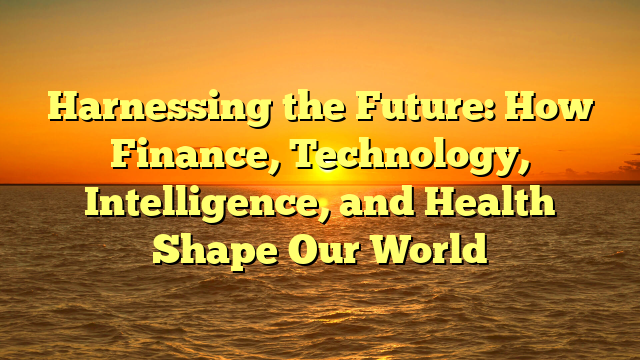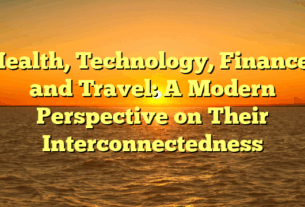In our fast-changing era, the fusion of financial systems, technological advancements, artificial and human intelligence, and healthcare innovation is reshaping how we interact with the world. This in-depth article will delve into how these four critical sectors are integrated and what their evolution mean for society, businesses, and individuals.
—
1. Financial Innovation in the Digital Age
Gone are the days when finance was just about banks and ATMs. Now, we witness a paradigm shift as financial technology continues to innovate the industry.
Digital wallets like PayPal and cryptocurrencies such as Bitcoin are redefining how people engage with financial systems. Machine learning algorithms are being leveraged by banks to automate processes, detect fraud, and offer personalized financial advice.
Important Innovations in Fintech:
Robo-advisors for automated wealth management
Blockchain for secure and transparent transactions
Open banking APIs allowing third-party developers to create new services
Peer-to-peer lending that eliminate the need for traditional intermediaries
These trends are enabling individuals and businesses to take charge of their finances with more efficiency and precision than ever before.
—
Tech’s Role in Shaping the World
Technology fuels nearly every aspect of life today. From IoT devices to cloud computing, the pace of technological evolution is unmatched.
Artificial Intelligence (AI), in particular, is changing how companies function, how governments serve citizens, and how individuals make daily decisions.
What’s Powering Tomorrow’s World:
5G networks for ultra-fast communication
AI assistants that can schedule appointments, order groceries, or control smart homes
Augmented and virtual reality applications in education, gaming, and healthcare
Advanced computing with potential to solve problems beyond the reach of classical computers
Organizations that leverage technology are more likely to thrive their competitors in today’s digital-first environment.
—
Smart Thinking: Human and Artificial Intelligence
Humans are no longer the sole possessors of intelligence. With the advent of cognitive computing, systems are now capable of learning and even making decisions.
Virtual assistants are handling customer service tasks; machine learning models are helping in diagnosing diseases, and natural language processing is enabling machines to understand and respond in human languages.
The Intelligence Spectrum:
Humans excel in creativity
AI handles massive data sets efficiently
Combining the two leads to superior outcomes in fields such as finance, medicine, and education
The challenge lies in how we integrate both forms of intelligence to maximize potential and enhance human capability.
—
Smart Healthcare Systems
The health industry is experiencing digital transformation. Wearables now monitor heart rate, sleep quality, and activity levels in real-time. Telemedicine allows patients to consult doctors remotely, breaking down geographical barriers.
AI and big data are helping in early diagnosis, while robotic surgery improve surgical precision. Genomics and personalized medicine are paving the way for customized treatment plans tailored to an individual’s genetic makeup.
Key Trends in Medical Technology:
Digital medical records for seamless access and coordination
AI-driven diagnostics improving accuracy and reducing errors
Online consultations making healthcare more accessible
Mental health apps supporting psychological well-being
As we continue to blend technology with healthcare, the quality of medical services will only increase.
—
5. The Unified Future: When Finance, Tech, Intelligence, and Health Collide
What happens when these four forces combine? Think of a health insurance app that uses AI to track your fitness, adjust your premiums accordingly, and even propose lifestyle changes based on your habits.
Smart contracts can handle healthcare payments without human intervention. AI-driven financial tools can take your health, spending habits, and risk factors into account to plan your future.
Real-World Example:
A wearable device tracks a user’s health metrics, and this data is securely stored using blockchain. An AI algorithm analyzes the information and alerts the user of potential issues. At the same time, the platform adjusts their investment portfolio and insurance coverage automatically, offering complete financial and health integration.
This is not science fiction—it’s already happening.
—
Conclusion: Embracing a Future Built on Innovation
True innovation is multidisciplinary. Finance, technology, intelligence, and health are becoming inseparable, and their integration will shape the world we inherit.
To thrive in this future, individuals and organizations must be adaptable. Whether you’re a business owner, understanding these shifts will help you navigate change.
Keep learning, because Slot gacor may be where you least expect it—at the crossroads of these powerful forces.

